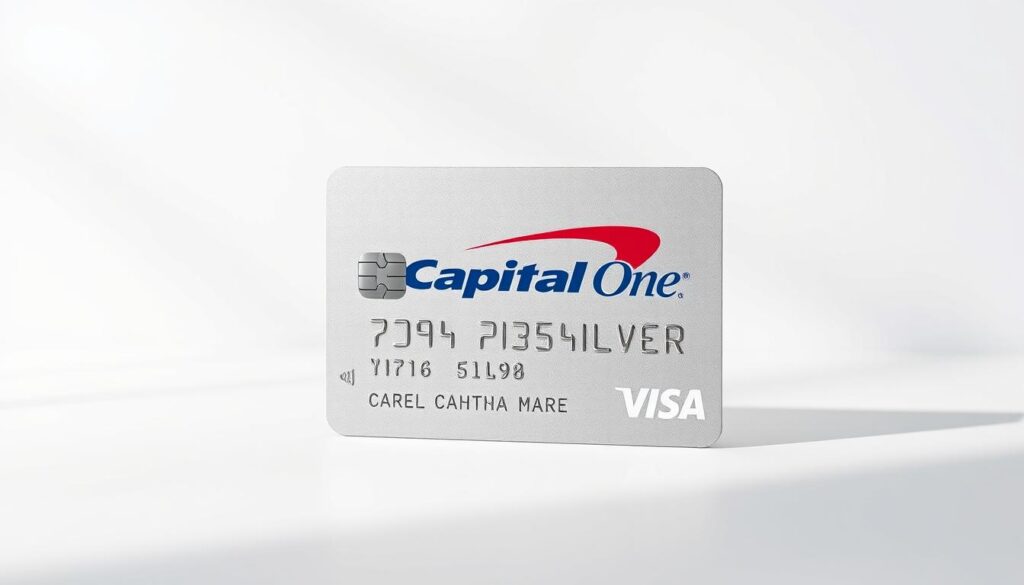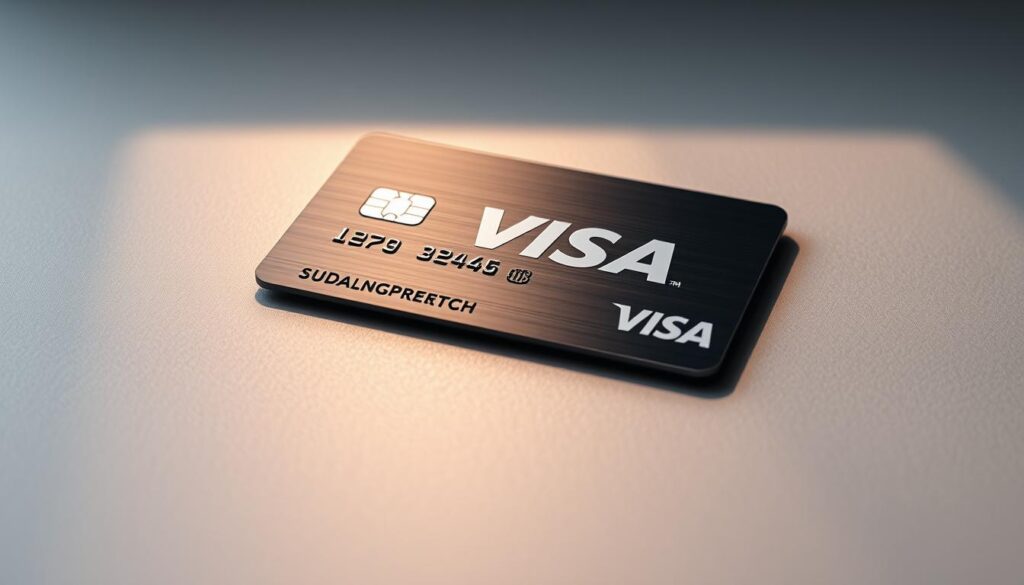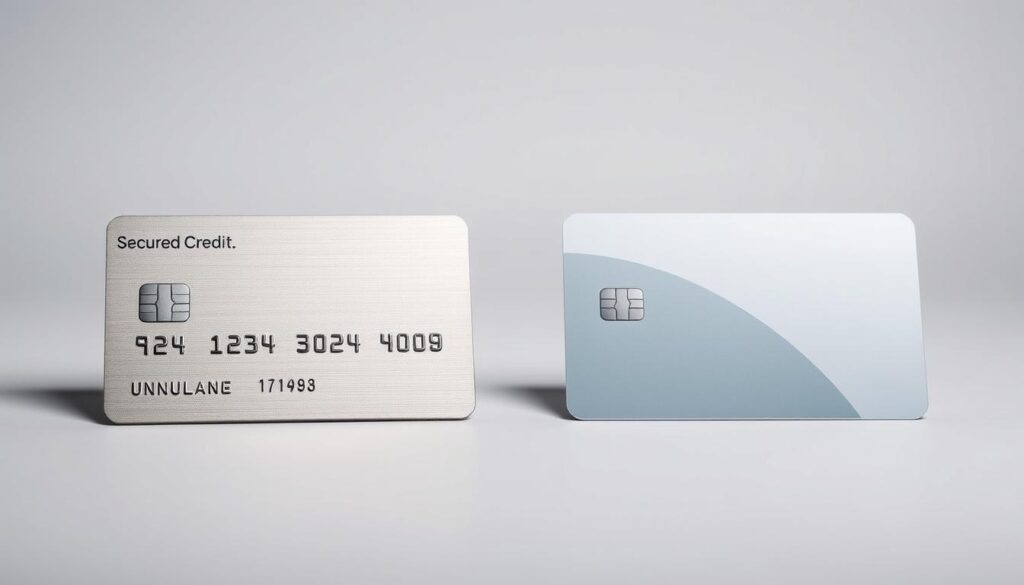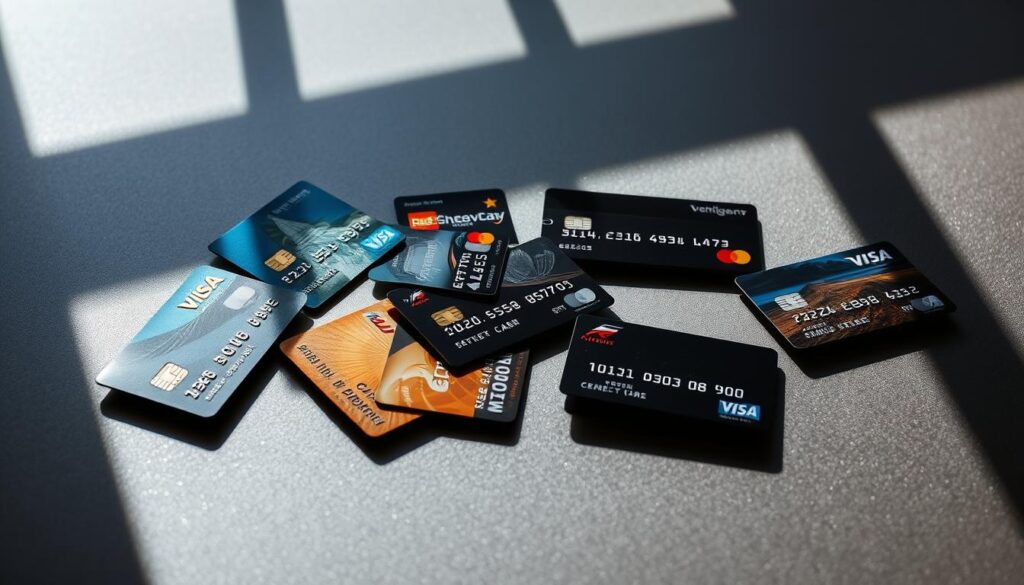Struggling with a low credit score? You’re not alone. The financial landscape in 2025 offers more options than ever to help you rebuild your credit history. Whether you need a secured credit card or an unsecured option, there are tools designed to fit your situation.
Many issuers now report to all three major credit bureaus, helping you improve your FICO® score over time. According to NerdWallet’s latest update, responsible cardholders saw an average 30-point increase within months. Cards like Chime stand out with $0 annual fees and proven Experian®-verified results.
Look for low fees, clear upgrade paths, and Visa® credit card accessibility. These features make managing your finances easier while boosting your creditworthiness. With the right strategy, you can turn things around—starting today.
Key Takeaways
- 2025 offers improved credit-building tools for low scores.
- Secured and unsecured options report to major bureaus.
- Low fees and upgrade paths maximize value.
- Providers like Chime eliminate annual fees.
- Responsible use can raise FICO® scores by 30+ points.
Best Credit Cards for Bad Credit in 2025
Rebuilding your financial health starts with the right tools. Whether you need a secured credit card or an unsecured credit card, 2025 offers solutions tailored to lift your credit score.
Secured vs. Unsecured: Key Differences
Secured cards require a refundable deposit ($200–$300 on average). They’re safer and often report to three major credit bureaus. Discover it® even offers cashback while you rebuild.
Unsecured options skip the deposit but come with risks. Some charge APRs above 25%, like subprime products. DCU Visa® Platinum stands out with a 15.75% rate—proof that better deals exist.
Smart Picks for Fast Progress
- Chime: No credit check and no annual fees.
- Capital One: Flexible deposits ($49 or $99) and upgrade paths.
- Discover it®: Earn rewards while improving your credit score.
Avoid «fee stacking» in unsecured cards. Always verify if the issuer reports to major credit bureaus. Consistent payments can boost your score by 30+ points in months.
«47% of Americans hesitate to marry someone with poor credit.» — WalletHub
What to Look for in a Bad Credit Credit Card
Not all credit-building tools are created equal—know what to prioritize. The right card should minimize costs, report your progress, and fit your budget. Focus on these three features to make the most of your financial fresh start.
Low Fees and APR
High costs can undo your progress. Avoid cards with excessive annual fees—OpenSky® charges $35, while Self Visa® drops to $25 after the first year. Compare APRs too:
- Discover it® Secured: 27.24% variable APR
- Firstcard®: Subscription-based model (no interest)
NerdWallet warns against «predatory fee stacking.» Always read the fine print before applying.
Credit Bureau Reporting
Your card must report to all credit bureaus (Experian®, Equifax®, TransUnion®). Chime’s partnership with Experian® helps users improve credit scores 30% faster. Confirm this feature—some issuers skip certain bureaus.
Security Deposit Requirements
Secured cards need a refundable deposit. Compare options:
| Card | Deposit | Credit Limit | Annual Fee |
|---|---|---|---|
| Capital One Platinum | $49–$99 | $200 | $0 |
| Chime | Spending collateral | Varies | $0 |
| OpenSky® | $200+ | Equal to deposit | $35 |
Keep utilization below 30% of your credit limit to maximize score gains. Small, frequent payments work best.
«Cards reporting to all three bureaus accelerate credit recovery by 40%.» — Experian® 2025 Data
Chime Secured Credit Builder Visa® Credit Card
Building credit doesn’t have to be complicated—Chime makes it simple. This secured Visa® credit card requires no credit check and reports to all three bureaus, helping you grow your credit history with every payment. Plus, it’s backed by a $0 annual fee and tools like SpotMe® to keep you on track.
No Credit Check, No Stress
Unlike traditional secured cards, Chime skips the hard credit check. Approval hinges on an active Chime checking account and $200+ in monthly direct deposits. Your security deposit isn’t locked away—it’s held in a spending account, so you can still access funds while building credit.
An Experian® study showed users gained an average 30-point FICO® boost in 8 months. That’s faster than many cards requiring strict credit checks.
Easy Account Management
Chime’s mobile app lets you track payments, set alerts, and monitor your credit history in real time. SpotMe® covers overdrafts up to $200, so missed payments won’t derail your progress.
- No minimum credit score: Ideal for thin files or recent setbacks.
- Upgrade paths: Transition to unsecured credit as your score improves.
- Transparent fees: No hidden charges or surprise APRs.
«Chime users rebuild credit 40% faster than traditional secured cardholders.» — 2025 CreditBuilder Report
Capital One Quicksilver Secured Cash Rewards Credit Card
Rewards and credit-building combine seamlessly with the Capital One Quicksilver Secured Cash Rewards Credit Card. This secured option lets you earn cash back while working toward a healthier financial future—all with no annual fee.

Earn Cash Back on Purchases
The card offers a tiered rewards structure:
- 1.5% cash back on all purchases
- 5% back on hotels and rental cars booked through Capital One Travel
Unlike many secured cards, it matches the rewards of unsecured alternatives. Compare it to the Discover it® Secured, which offers rotating 2% categories but requires higher spending to maximize value.
| Feature | Quicksilver Secured | Discover it® Secured |
|---|---|---|
| Base Rewards Rate | 1.5% cash back | 1% (2% in categories) |
| APR | 29.74% Variable | 27.24% Variable |
| Credit Line | $200–$3,000 | Deposit-matched |
Upgrading Opportunities
Capital One reviews accounts automatically for upgrades. Responsible use (like on-time payments and low utilization) can transition you to an unsecured Quicksilver card within 12–18 months. Your credit line may also increase without additional deposits.
Tools like CreditWise® help track progress. You’ll get alerts for score changes and dark web monitoring—key for those working to rebuild credit.
«Secured cardholders who upgrade to unsecured see a 22% higher credit score within two years.» — Capital One 2025 Data
Discover it® Secured Credit Card
Turn everyday purchases into credit-building wins with Discover’s secured cashback offer. Unlike most secured cards, this one rewards you for responsible spending while reporting to all three bureaus. It’s a standout for building credit without sacrificing perks.
Balance Transfers: Smarter Debt Management
Got high-interest debt? The 10.99% intro APR on balance transfers (for 6 months) lets you consolidate and save. Transferring $1,000 could save you $90+ in interest versus a 25% APR card. Just pay it off before the promotional period ends.
Discover also waives the 3% transfer fee for the first 60 days—a rare perk among credit card offers.
Cashback Match™: Double Your First-Year Rewards
Earn 2% cash back at gas stations restaurants (up to $1,000/quarter) and 1% elsewhere. Discover then matches all rewards after 12 months. Spend $500/month on gas? That’s $120 extra by year’s end.
Compare that to unsecured cards: Many require 700+ scores for similar rewards. Here, your credit limit grows as your deposit does, with no annual fee.
- 8-month upgrade path: Discover reviews accounts automatically for unsecured conversion.
- FICO® Score access: Free monthly updates track your progress.
- No foreign fees: Use it abroad without penalty.
«Secured cardholders who earn rewards rebuild credit 25% faster than non-rewards users.» — 2025 Credit Karma Report
Pro tip: Keep utilization under 30% of your limit. Small, frequent payments boost scores faster than maxing out and paying in full.
Capital One Platinum Secured Credit Card
Low upfront costs make rebuilding your credit history accessible. The Capital One Platinum Secured Card stands out with deposit options as low as $49—ideal for tight budgets. Unlike cards requiring $200+ upfront, this flexibility helps you start small and grow.
Low Deposit Requirements
Your security deposit determines your credit limit. Capital One offers two tiers:
- $49 deposit for a $200 limit (qualification required).
- $99 deposit for the same limit (standard option).
Compare this to Firstcard®’s subscription model or Chime’s spending collateral. Few secured cards offer such low initial costs.
Flexible Payment Options
Capital One’s pre-approval tool checks eligibility without hurting your credit score. Multilingual customer support (English/Spanish) ensures clarity during setup.
| Feature | Capital One Platinum | Firstcard® |
|---|---|---|
| Min Deposit | $49 | $0 (monthly fee) |
| Credit Limit | $200 | $100–$1,000 |
| Reports to Bureaus | All three | Experian® only |
Responsible use can trigger auto-graduation to an unsecured Quicksilver card. Users often see upgrades within 12 months—boosting their credit score further.
«Secured cardholders who upgrade save $150+ annually in fees.» — NerdWallet 2025
OpenSky® Secured Visa® Credit Card
A solid credit-building option with no credit checks? OpenSky® delivers. This secured Visa® card helps you rebuild credit without a hard inquiry—ideal if past rejections left you wary. While it carries a $35 annual fee, its perks like cashback rewards and bureau reporting make it stand out.
No Credit Check Approval
OpenSky® skips the credit check, making approval easier for low scores or thin files. Your deposit ($200 minimum) becomes your credit limit, and activity reports to all three major credit bureaus. Unlike unsecured credit cards, this reduces approval stress while boosting your score.
International applicants have higher approval odds too. Non-residents can qualify with an ITIN, unlike many U.S.-only cards.
Lower Deposit Options
While $200 is the minimum, OpenSky® Plus offers a no-fee alternative with a $500+ deposit. Compare the two:
| Feature | OpenSky® Secured | OpenSky® Plus |
|---|---|---|
| Annual Fee | $35 | $0 |
| Deposit | $200+ | $500+ |
| Cashback | Up to 10% | None |
| Credit Limit | Equal to deposit | Higher tiers |
Responsible use can trigger limit increases without extra deposits. Just keep utilization below 30% and pay on time.
- Earn rewards: Get up to 10% cashback at select retailers.
- No hard pulls: Limit increases won’t hurt your score.
- Bureau reporting: All credit bureaus track your progress.
«OpenSky® users see a 28-point average FICO® increase within a year.» — 2025 CreditBuild Report
Tip: Weigh the $35 fee against rewards potential. If cashback covers the cost, it’s a win-win.
Self Visa® Credit Card
A credit-builder loan and card in one? Self merges both for faster score improvements. This secured credit card skips hard credit checks and reports to all three bureaus—ideal if your history needs work. With a $100 minimum deposit and smart tools, it’s built for steady progress.

No Hard Credit Check
Self approves you based on your deposit, not past mistakes. No hard credit check means no hit to your credit score. Your activity reports monthly to Experian®, Equifax®, and TransUnion®.
Unlike unsecured cards, you’ll start with a credit line equal to your deposit. Pay on time, and Self may increase it automatically.
Annual Fee Structure
Pay $0 the first year, then $25 annually—lower than many secured cards. Compare fees:
| Card | First-Year Fee | Ongoing Fee | APR |
|---|---|---|---|
| Self Visa® | $0 | $25 | 28.24% |
| OpenSky® | $35 | $35 | 17.39% |
| Chime | $0 | $0 | N/A |
Pro tip: Pair the card with Self’s credit-builder loan. Both report payments, doubling your positive history.
- Mobile app tracking: Monitor your credit score and payment history in real time.
- Rent reporting: Add on to include rent/utility payments in your credit file.
- Low deposit: Start with just $100—half the cost of many secured cards.
«Self users see a 32-point average credit score increase within 10 months.» — 2025 Self Credit Trends Report
Firstcard® Secured Credit Builder Card
International students and newcomers can now build credit without traditional barriers. Firstcard® blends subscription flexibility with global-friendly features, making it a top pick for those starting fresh in the U.S.
Student-Centric Benefits
No SSN? No problem. Firstcard® accepts ITINs and international IDs, helping you establish a credit history. Partner university programs even waive fees for enrolled students.
- Multi-currency accounts: Spend in USD, EUR, or GBP without conversion fees.
- No hard credit check: Approval won’t hurt your score.
- Credit limit: Starts at $100, scalable with higher-tier plans.
Subscription Tiers Explained
Ditch deposits—monthly fees cover your card access. Compare plans:
| Plan | Monthly Cost | Cashback | Perks |
|---|---|---|---|
| Basic | $4.99 | 1% | Credit bureau reporting |
| Premium | $12.99 | 15% | Higher credit limit, rent reporting |
Reports go to three major credit bureaus, accelerating your progress. Premium users see faster credit limit increases and can import international credit history.
«Firstcard® users improved scores by 35+ points within a year, even without prior U.S. credit.» — 2025 Global Credit Report
Tip: Pair the card with a secured loan to double your positive credit bureaus reporting. Avoid maxing out your limit—keep utilization under 30% for best results.
How to Improve Your Credit Score with a Credit Card
A credit card can be your fastest ticket to a better financial future—if used wisely. Whether you’re starting fresh or recovering from past setbacks, smart habits like on-time payments and low utilization can boost your credit score faster than you think.
On-Time Payments Matter Most
Payment history makes up 35% of your FICO® score. Just one late payment can drop your score by 100+ points. Set up autopay for at least the minimum due—tools like Capital One’s Eno® send reminders before due dates.
- Automate payments: Link your checking account to avoid missed deadlines.
- Alerts help: Use WalletHub’s free tools to track payment dates.
- Rapid rescoring: Some issuers update bureaus within days if you correct a late payment.
Keep Credit Utilization Low
Using less than 30% of your credit limit shows lenders you’re responsible. For a $300 limit, aim for a $90 max balance. Paying weekly keeps utilization in check without waiting for statements.
| Credit Limit | Ideal Max Balance | Impact on Score |
|---|---|---|
| $300 | $90 | +15–30 points |
| $500 | $150 | +20–35 points |
| $1,000 | $300 | +25–40 points |
Monitor Your Progress Regularly
Free services like Credit Karma (TransUnion®/Equifax®) and Experian® give weekly updates. Compare reports to catch errors—24% of Americans find mistakes hurting their credit history.
«Monitoring all three bureaus helps 68% of users spot fraud faster.» — WalletHub 2025
Remember: APR doesn’t matter if you pay in full each month. Focus on habits that build your credit report, not debt.
Eligibility Requirements for Bad Credit Cards
Qualifying for a credit card with financial challenges is easier than you think. Many issuers now consider factors beyond your credit score, like banking history or alternative payment records. Whether you need a secured credit option or an unsecured card, understanding approval criteria helps you apply confidently.
Minimum Credit Score Expectations
Most cards for poor credit accept FICO® scores between 300-669. Chime skips traditional scoring models entirely—it only requires an active checking account with $200+ in monthly deposits.
Key differences in approval checks:
- No credit check: OpenSky® and Self approve based on deposits alone
- Soft pull: Capital One checks your report without affecting your credit score
- Alternative scoring: Firstcard® analyzes utility payments for international applicants
Income and Employment Verification
Issuers typically want proof you can repay debts. Standard documents include:
- Recent pay stubs (last 30 days)
- Bank statements showing regular deposits
- Tax returns for self-employed applicants
No job? Some alternatives work:
- Social Security/disability payments
- Rental income documentation
- College financial aid letters
| Card | Min Score | Income Proof | Special Cases |
|---|---|---|---|
| Chime | N/A | Bank deposits | No credit check |
| Capital One | 300 | Pay stub optional | Soft pull only |
| OpenSky® | None | $200 deposit | ITIN accepted |
«73% of secured card approvals now use alternative data beyond traditional credit reports.» — 2025 Credit Access Survey
Warning: Multiple applications trigger hard inquiries, which can lower your credit score by 5-10 points each. Space out applications by 90+ days for best results.
Secured vs. Unsecured Cards: Which Is Right for You?
Your deposit flexibility often determines which card fits your financial situation. Secured cards require upfront cash, while unsecured cards rely on your credit history. Both can rebuild scores, but their trade-offs matter.

Pros and Cons of Secured Cards
These cards use your security deposit as collateral. OpenSky® requires $200, while Capital One accepts $49. Your deposit usually equals your credit limit.
Key advantages:
- Higher approval odds with poor scores
- Deposit refunds when upgrading/closing accounts
- Bureau reporting to all three agencies
Watch for:
- $35+ annual fees (OpenSky®)
- Frozen deposits during use
- Lower limits than unsecured options
When to Choose Unsecured
DCU Visa® Platinum proves exceptions exist—its 15.75% APR beats most unsecured cards. But generally:
| Scenario | Best Pick | Reason |
|---|---|---|
| Emergency funding | Self Visa® | No hard credit check |
| International students | Firstcard® | ITIN acceptance |
| Rewards seekers | Discover it® | Cashback while rebuilding |
Hybrid products like Firstcard®’s subscription model offer middle ground. You pay monthly fees instead of deposits—ideal if cash is tight.
«Secured card users rebuild credit 22% faster but face 3x more liquidity challenges.» — 2025 Federal Reserve Report
Tip: Calculate break-even points. A $35 fee equals 17.5% of a $200 deposit—only worthwhile if rewards offset costs.
Common Mistakes to Avoid with Bad Credit Cards
Rebuilding your credit history requires strategy—avoid these costly missteps. Many consumers unknowingly sabotage their progress through application errors and fee traps. We’ll show you how to sidestep these pitfalls while maximizing your card’s benefits.
Applying for Too Many Cards
Each application triggers a hard credit check, dropping your score by 5+ points. Multiple applications compound the damage. Capital One’s 2025 data shows applicants who spaced requests by 90 days saw 22% better approval odds.
Three smart application rules:
- Use pre-qualification tools: Chime and Discover offer soft checks that don’t hurt your score
- Batch applications: Rate-shopping windows let you compare cards within 14 days as one inquiry
- Verify bureau reporting: Ensure the card reports to all three credit bureaus before applying
Ignoring Fees and APR
Predatory cards stack fees—activation, monthly, and maintenance charges can exceed $100/year. The OpenSky® Secured Card’s $35 annual fee equals 17.5% of a $200 deposit.
Watch for these fee traps:
| Fee Type | Average Cost | Better Alternative |
|---|---|---|
| Program Fee | $8–$12/month | Chime ($0 monthly) |
| Balance Transfer | 3–5% | Discover it® (0% intro) |
| Late Payment | $29–$40 | Self Visa® (grace period) |
«79% of subprime cardholders pay more in fees than they gain in credit benefits.» — Consumer Financial Protection Bureau 2025
Pro tip: Always calculate break-even points. If rewards don’t offset fees within 6 months, reconsider the card.
Tips for Choosing the Right Card for Your Needs
Your ideal credit-building partner depends on fees, flexibility, and future potential. Whether you prioritize low costs or rewards, aligning features with your goals ensures steady progress.
Prioritizing Low Fees
Long-term costs matter more than flashy perks. Compare Chime’s $0 annual fee to Self’s $25/year—over two years, that’s $50 saved. WalletHub’s calculator shows how fees eat into rewards.
Watch for hidden charges:
- Monthly maintenance fees: Some subprime cards charge $10+ monthly.
- Balance transfer costs: Discover it® waives these for 60 days.
- Foreign transaction fees: Capital One Platinum skips these.
Considering Future Upgrades
Look for cards with clear graduation paths. Capital One reviews accounts every 6–12 months, often upgrading secured users to unsecured credit cards. Requirements include:
| Card | Upgrade Timeline | Key Criteria |
|---|---|---|
| Capital One | 6–12 months | On-time payments, low utilization |
| Discover it® | 8 months | Positive bureau reporting |
| Chime | N/A | Automatic limit increases |
Credit unions like DCU offer lower APRs (15.75%) and membership perks. Pair your card with a credit-builder loan to accelerate progress.
«Cards with upgrade paths improve credit scores 40% faster than static options.» — 2025 CreditTrends Report
Pro tip: Weigh rewards against fees. If cashback covers the annual cost, it’s a win. Otherwise, prioritize low-fee tools that report to all credit bureaus.
How to Apply for a Bad Credit Credit Card
Getting approved for a card with financial challenges is simpler than many assume. Whether you choose a secured credit option or an unsecured card, preparation streamlines the process. Gather your documents and understand the steps to avoid delays.
Required Documents
Issuers typically ask for:
- SSN or ITIN: Essential for bureau reporting.
- Proof of address: Utility bills or lease agreements work.
- Income verification: Pay stubs, bank statements, or tax returns.
Chime’s mobile-first process skips traditional paperwork. Just link your checking account with $200+ in monthly deposits.
Online vs. In-Person Applications
Online apps take minutes. Capital One and Discover offer instant decisions. Branches provide face-to-face help but may delay approvals by days.
| Method | Speed | Best For |
|---|---|---|
| Online | Instant–24 hours | Tech-savvy users |
| In-Person | 3–5 business days | Complex cases |
Use prequalification tools to gauge approval odds without a credit check. Discover and Capital One offer soft pulls that don’t affect your credit score.
«Online applicants see 50% faster approvals than branch submissions.» — 2025 FinTech Trends Report
Tip: If denied, ask for reasons. Some issuers reconsider with additional documentation.
FAQ
What’s the difference between secured and unsecured credit cards?
A secured card requires a security deposit, which often becomes your credit limit. Unsecured cards don’t need a deposit but may have stricter approval requirements.
Can I earn cash back with a bad credit card?
Yes! Some secured cards, like the Capital One Quicksilver, offer rewards like 1.5% cash back on purchases.
Do secured cards help improve my credit score?
Absolutely. Most report to the three major credit bureaus, so on-time payments and low utilization can boost your score.
Conclusion
Your journey to better credit doesn’t have to feel overwhelming. With options like Chime, Discover it®, and Capital One, you’ve got tools designed for progress. These credit cards report to bureaus, helping lift your credit score in as little as 6 months.
Avoid rushing into applications—desperation leads to fee traps. Instead, pair your card with free resources like Credit Karma or NerdWallet. Knowledge speeds up your comeback.



